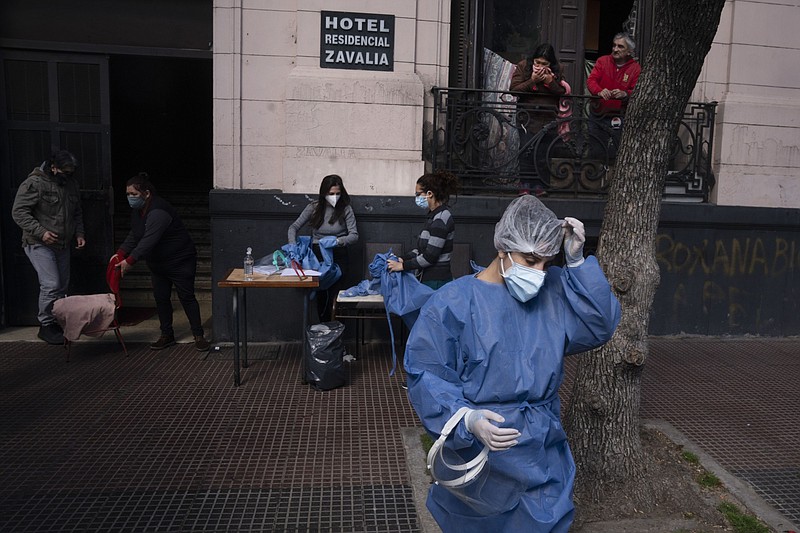The U.S. and other superpowers have laid claim to billions of covid-19 vaccine doses that are nearing the finish line. That's sparked worries that poorer countries will be left behind and that shots will be slow to reach many of the world's 7.8 billion people.
Dozens of laboratories, researchers and companies in countries such as Thailand and Nigeria are bootstrapping their own work on inoculations.
After covid-19's emergence in Buenos Aires led to a strict lockdown in March, Juliana Cassataro and her fellow vaccine researchers grew concerned. The U.S., Europe and China had already revved up their quests to obtain doses; how far back in line would Argentina have to wait for supplies?
"We did not want to stay in our homes," said Cassataro, a scientist at the National University of San Martin in the nation's capital. "We wanted to use our knowledge to help in this pandemic."
Determined to give Latin America its own protection from the fast-spreading virus, Cassataro's team -- 10 women and two men -- quickly got to work. A government grant of $100,000 in May paid for initial studies, and human trials could start in about six months.
Groups such as the World Health Organization; the Oslo-based Coalition for Epidemic Preparedness Innovations; and Gavi, the Vaccine Alliance are working to ensure that coverage extends beyond the developed world. But memories of the 2009 swine flu outbreak, when pandemic vaccines barely made their way past the top tier of wealthy countries, persist.
"There's a fear factor," said Seth Berkley, Gavi's chief executive officer.
Following the big drugmakers into the testing arena may be difficult, especially if an approved vaccine is available. But if the work fails to deliver a product to fight the pathogen, it may still give countries a leg up in future outbreaks.
[CORONAVIRUS: Click here for our complete coverage » arkansasonline.com/coronavirus]
Argentina's vaccine is among roughly 170 advancing globally, according to the WHO. Airfinity, a U.K.-based analytics firm, has an even higher count -- more than 280 -- including about 50 in lower-income nations such as India, Turkey, Egypt and Kazakhstan.
The urgency is rising throughout the developing world. Argentina's infections have surpassed 400,000, with the death toll climbing to more than 8,300. Neighboring Brazil has 3.8 million cases, while India's is nearing 3.5 million. With more than 600,000 infections, South Africa has become a fertile testing ground for vaccines.
One of the fastest-moving prospective vaccines outside the wealthy world is in Thailand, though scientists at Chulalongkorn University said they have been forced to delay the start of human testing by a few months until December. The Thai team, relying on messenger RNA technology similar to that used by U.S. biotech company Moderna, aims to introduce a vaccine in the country by the second half of 2021.
Leapfrogging them all is Russia's Sputnik V vaccine that President Vladimir Putin authorized before a conclusive test of its effectiveness and safety. The attention the inoculation has received -- Russian officials have said at least 20 countries are interested in obtaining it -- shows the level of desperation.
Latin America got some relief earlier this month when Argentina and Mexico reached agreements to produce as many as 250 million initial doses of AstraZeneca's experimental vaccine, an effort backed by billionaire Carlos Slim's foundation. China has offered to lend Latin American and Caribbean countries $1 billion to purchase doses.

